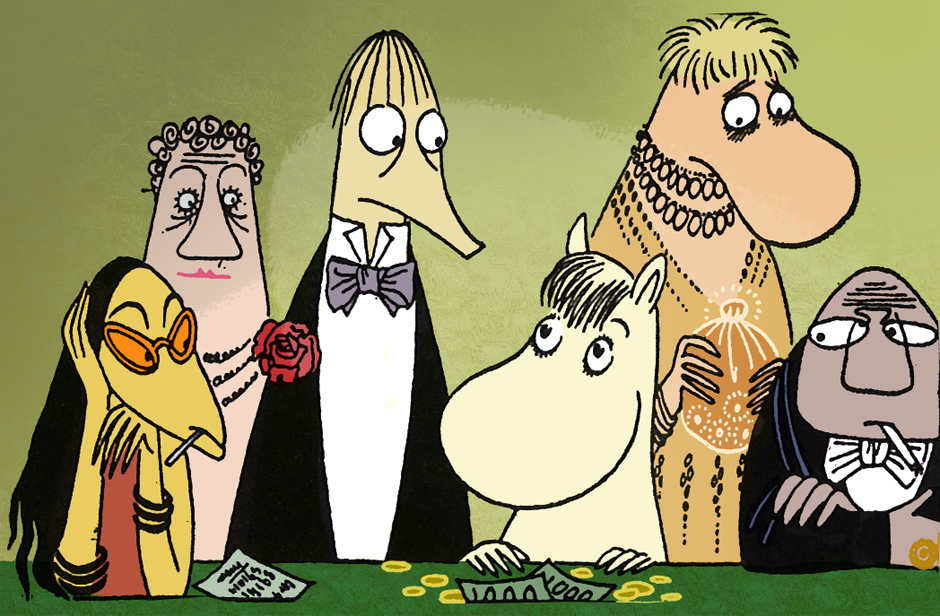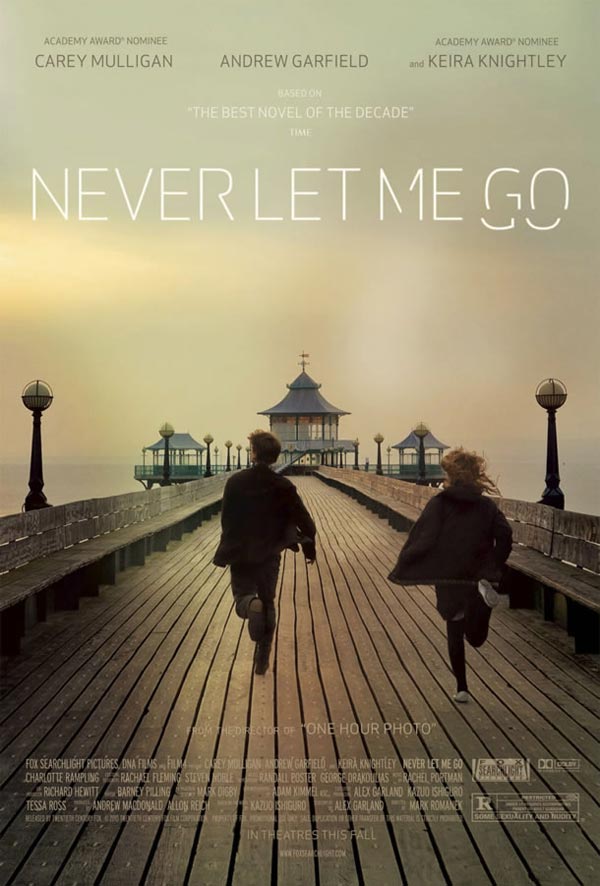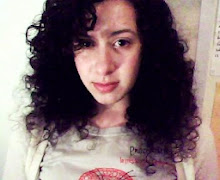In which Percy is filled with wonder,
Hamlin makes up for a scant breakfast,
and an unexpected guest arrives
***
Percy sat
comfortably in the little drawing room, his sisters on either side.
After leaving the library, Genevieve had directed them each to the
respective chambers that had been prepared for them, where they were
able to freshen up and change into clean clothing, with the help of
the invisible servants. Percy was slowly adapting to seeing a pair
of white gloves bob about in lieu of a an entire person. His new
valet was a chatty, middle-aged man named Jean who went on and on
about how the hens had been too flustered to lay that morning, and
how the little golden fish in the pond kept leaping out of the water
in excitement; the gardeners had to keep throwing them back in.
“Why, we've all
been in a flurry! This is the first time we've celebrated, properly,
since Prince Luc left us. We're beside ourselves with joy. And just
wait till you see the dinner the cooks've got ready for ya,” the
valet chortled. Percy could only smile, dazed.
His bedroom,
like his sisters', was spacious and finely furnished, but simple; as
was their new attire. A suit of royal blue brocade had been laid out
for Percy. Once he was downstairs, his sisters had appeared in
lovely frocks made of pure, fine cotton: burgundy for Musetta, and a
spring green for Soleil.
Now they all sat
across from the cat-people and Mortimer. It was a balmy afternoon –
a gentle breeze from outside played against Percy's skin. The
branches swaying beyond the window cast dappled shadows upon
Genevieve's snow-white face. She took one more sip of tea before
setting down cup and saucer and clearing her throat emphatically.
“Shall we
begin?” She asked. Percy nodded, smiling. It was strange, so
strange, how it seemed as though he'd seen her fold her hands just so
a thousand times; as though he knew so well the way that Mortimer was
leaning his elbows back upon the sofa.
Something new.
Percy jumped and
glanced over his shoulder. “Who was that?”
“Who was what?”
Genevieve asked innocuously. Percy turned back around, frowning.
He was sure that he hadn't imagined the voice. He was also sure that
it was the same voice that had woken him up in the carriage that
morning. He stared at the three wide-eyed faces across from him.
They stared back, but then Mortimer looked away and bit his lips,
eyes crinkling. Confused, Percy settled back onto the sofa. He
concluded that no good would come of pushing things.
But I want to
know.
Genevieve reached
over the wooden table to grasp an orange from a large porcelain bowl.
She considered it for a moment, as it lay in her palm. Then she
looked up at Percy.
“What if I told
you that this -” she closed her fingers around the piece of fruit,
paused for a moment; then opened them again to reveal an empty hand -
“was sleight of hand; but that this -” she recovered the orange
from behind her back and tossed it up into the air. As it reached
the height of its ascent, it vanished. Percy and his sisters gasped.
“- was real?”
“Real,” Percy
repeated softly, grinning. He felt like a little boy at the circus.
“The thing is,
while the two situations are different in essence – in one, the
orange is merely hidden; in the other, it truly disappears – the
two acts appear to be identical. It would take a very discerning eye
to determine which was a display of authentic magic, and which was
counterfeit.”
Percy nodded.
This made sense.
Genevieve peered
at him, her eyes bright. “We've all seen so much of the
counterfeit,” she said lowly, carefully. “And we've grown so
sick of being deceived; and then disillusioned by the things that we
trust, that we've trained ourselves to be cynics. We assume that
every wonderful thing we encounter must not be real, simply in
order to protect ourselves. In the process, we lose the truth. We
forget the Magic.”
Percy heard the
doors behind him open with a faint creak. He looked over, but
nothing was there but the door standing ajar. The creaking ensued –
but it was different, high and soft, as of little wheels. Around the
far-left corner of Percy's sofa came a diminutive wooden cart, pulled
by four white mice in a harness. In the cart lay the orange that
Genevieve had handled. The little animals scurried up to her, and
the two in front ran nose-first into her shoe. She gave a light
fillip of laughter. “Thank you, my dears,” she murmured, running
her finger lightly down each of their backs. At this display of
affection, one of the mice flopped over, wriggling its stomach around
invitingly. “Now, Alphonse,” Genevieve said sternly, shaking a
finger. The mouse sprung back onto its feet, thrusting its little
black nose high into the air. “Thank you, Sir,” she smiled, and
lifted the orange from the cart. “Now go back!” she encouraged,
pointing to the door. With some maneuvering, the four mice turned
themselves around and creaked back out of the room. The door closed
itself behind them.
“Oh!” Musetta
sighed, clasping her hands.
“We don't eat
them,” Hamlin said solemnly, his eyes filled with concern. A
silence followed.
Genevieve cleared
her throat again. “As I was saying – there is, and always has
been, a struggle between belief and disbelief in this world. A
struggle, a battle, lies at the heart of things. And understandably
so, for it takes the faith of a child, to believe in the Magic. It
takes a heart that is as tender as it is stout. It is no easy task,
even once one has woken up.” She paused, her lowered eyes slanting
sweetly. She placed the orange back on the table. All was quiet,
but for the mingling of birdsong with a ticking clock.
She leaned forward
and extended her hands over the table, frowning as if in
concentration. Percy realized that the sunlight that had filled the
room was beginning to dim by grades. He watched, fascinated, as a
small army of flickering flames arose from the table, perched upon
dripping stumps of wax. The candlelight danced eerily across the
three figures on the other side of the table. The little white cat
wrinkled her nose, clicking her tongue in disgust.
“It was a
stupid idea,” she mumbled, dropping her hands into her lap.
“No,” Percy
breathed, looking at her. “It's lovely.”
She peeked up at
him, a smile teasing her lips. She resumed her position, her hands
hovering over the little sea of candles.
Mortimer shifted
on the sofa. “May I?” he asked, looking at Genevieve. She
nodded, not moving her eyes from the table. Mortimer raised his own
hands, palms together, and then parted them, as if pushing open
curtains. Percy watched as the spread of candles expanded, and began
to break apart. Smaller clumps started to form, and soon enough,
Percy was looking at a map of the world. He spied Windward in the
west, Belvor below it; all the other little countries of their
continent molding into their proper shapes. Mortimer pointed a
finger at the Roseland-shaped clump, and a red flame appeared above
it, larger and more vibrant than the little candle-flames.
“That's exactly
what I was aiming for. Thanks, Mort,” Genevieve murmured. Then
she looked back up at Percy and his sisters. “There was a time
when everyone, the entire human race, lived with the Magic. Though
some were opposed to it almost from the very beginning, there were
few who denied its existence entirely. The real world was the world
of fairy-tales. It was as common then to see a golden carriage
transported by winged footmen, as it is today to see an ordinary
carriage pulled by horses.” As she spoke, she seemed to become
more comfortable with her words, and they began to flow out of her
easily as if this were a story she'd shared a hundred times.
“It was like
that for the longest time, we are told,” she said. “But then,
nearly two hundred years ago, the darkness began. It robbed hearts
of their wonder and put weariness in its place,” she said softly,
her eyes on the table again. Percy looked, and saw that the candles
were starting to go out. It was only a few here and there, at first;
but then dozens were extinguished in quick succession, until only a
few flames remained flickering in each country. Genevieve didn't
lift a finger throughout this; she only kept her eyes sadly fixed
upon the candles. Percy noticed that Roseland was the darkest of all
the countries on the map, although the red flame still hovered above
it.
“Soon, the
minority who had ceased to believe in the Magic became the vast
majority. They fell asleep to it. They became blind to it. It was
as if all the most beautiful things in the world had become invisible
to them. It became so that all of the fantastic creatures had to be
concealed by a barrier of invisibility, to protect them from
exploitation and abuse. People were beginning to treat them like
freaks of nature, like mere spectacles.”
Percy glanced the
table. The candles were starting to melt away into nothingness;
soon, they had disappeared completely. He noticed Hamlin staring at
the wood with big, unblinking eyes. After a few moments, something
new began to rise out of the table: a little porcelain dish bearing a
strawberry pastry. Hamlin squinted, and the filling brightened into
what looked like peach. He smiled, and surreptitiously stuck his
finger into the middle where the filling was.
“Once hidden,
the creatures were safe, but they hadn't been made to live in such
isolation from the rest of the world. Most of the creatures soon
died of broken hearts – all of the faerie and mer-people, followed
not long after by the rest. Those that survived the onset of the
Slumber – a couple of dragons and some gnomes deep within the
mountains – were so few that their races went extinct within some
twenty years. And this is when the Guild was formed. It was very
small, back then.” Genevieve looked up at Percy. “Your mother's
family, the d'Aulnoys, were always a part of it. Every generation,
straight through the Slumber. They were always faithful.”
Percy tried to
take this all in. His mind kept creeping back to the naming of
fantastical creatures. “But – fairies?” He asked. “And
dragons? They were real?” He felt a little dizzy.
Genevieve nodded
excitedly. “And so many others, too; too many to name! And now –
I'm sure you have figured it out by now, haven't you?”
“Figured out
what?” Percy felt somewhat slow.
Genevieve smiled,
her eyes turning into thin blue slivers. “This: that every
fairy-tale your mother every told you is real.”
Percy blinked at
her.
“They're all
real,” he repeated, dubiously.
“Yes.”
“You mean they
actually happened?”
“That is exactly
what I mean, my prince. And they didn't just happen in the minds of
a nation, or in hearts throughout history – they happened here, now
– or at least, a place that was once 'here', and a time that was
once 'now' – it was real as this -” she rubbed her hands
together - “as this -” she struck the arm of her sofa - “as
real as the hair on your head, as real as the blood flowing through
you!” She was bouncing upon the cushions, her entire face was
upturned and illuminated by laughter. And they were all laughing.
“It was real,
and for a purpose. It was real, as we are real. And we can fall
asleep, we can forget for as long as we like; but it will still be
real when we wake up. The Magic lives within us, but only because it
first lives outside of us.”
Percy shook his
head. “But – well, surely, the stories have been embellished
over the years?”
Genevieve tilted
her head back, clapping her hands delightedly. “Quite the
contrary. Indeed, the facts have had to be dulled considerably in
order to fit upon blank pages and human tongues.”
Percy sat back
against the sofa, grinning. He looked from the three beaming faces
across from him to his sisters. Soleil was putting her arms around
his neck and kissing him. Musetta leaned over. “I knew it, all
along,” she was saying, shaking her head confidingly.
“Tell us more,”
Percy said. “Tell us everything.”
Genevieve held out
her hands. “Well, I've said enough,” she laughed. “Hamlin!”
She gave her brother a playful shove. Percy's heart warmed at the
sight: the big cat-man was nearly twice her size.
“Oh, alright,”
Hamlin rumbled, his ears turning red. He wiped a blob of peach
filling from his whiskers. “What's next?”
“Amelia,”
Mortimer replied, without missing a beat. His eyes were absent,
staring into space beneath a creased brow. Percy tensed up at the
name. He had managed to forget it, somehow, listening to Genevieve
speak.
“The woman who
killed my mother,” he said. He couldn't keep the loathing from his
voice.
“She's not a
woman,” Hamlin said ominously, shaking his head. “She doesn't
make for pleasant conversation, so I'll speak briefly. She was once
the most beautiful of any creature. And she was one of the first.
She was even more lovely than the goldenwings. But – she didn't
want to serve the King, when he assigned her to -” Hamlin stopped,
a shocked look on his face. “Gen,” he said, turning to his
sister, “we haven't told them about the King yet!”
“Oh!”
Genevieve squeaked, clapping a little white hand over her mouth.
“Oh,” Mortimer
said quietly, as if he didn't understand how such a thing could have
happened.
Then all three
simultaneously burst into laughter.
“Well, I
at least mentioned him, this morning,” Mortimer chuckled, drawing
his hands over his face.
“See, it isn't
easy to find the right words,” Genevieve said, smiling at Percy.
“And the three of you have probably heard plenty for today. So for
now, I will tell you only what is essential, for it would be possible
to talk about him for forever.” Her gaze shifted to look out the
window.
“He has many
names. Your mother called him the Great Enchanter in her diary, and,
indeed, that is just who he is: for he is the one from whom all the
Magic comes. He is the one who was, before all else. He is why the
animals dance here. He is why your mother was able to heal. He is
why your parents fell in love. He is why your lungs receive the air
around you. He is why Princess Soleil's hair curls, and why Princess
Musetta's lips are so red.
“And he is
here,” she finished. “He is here, with us, now. He has not yet
summoned us to take you to meet him. But he will summon you at the
right time.”
Percy didn't
understand. “But – what is he? What is he king of?”
“He is King of
everything,” Genevieve said simply. Percy could tell, by the way
that she closed her lips, that that was all she had to say. Could it
really be as simple as that?
“Well, I
have a question,” Musetta interjected. Percy was actually
surprised at how quiet and attentive she'd been throughout the whole
conversation. “If all of the fantastical creatures died out
centuries ago, then where did the winged horses and winged footmen
come from?”
“The 'winged
footmen' are, in fact, goldenwings,” Genevieve replied pertly.
“And they are not of this world, though they often enter into it.
Our pegasi, on the other hand, are...something else. They're new
creations. The first step in restoring the world back to the way it
was. The King is working on something, you see. I believe he is
planning a revolution, though I don't know when it might be set to
begin – he seems to be waiting for something to happen.”
Percy heard a
noise out in the hall. It sounded, for lack of better description,
like the clipping of a horse's hooves.
“Each time
someone remembers the Magic,” Genevieve continued, “he responds
by bringing back some piece of the old world. When Hamlin and I woke
up, he gave us the two pegasi to keep and to tend.”
There was a pause.
Then Musetta spoke - “Well, what about us? I mean, we're awake
now.”
There was a knock
at the door. Genevieve rose quickly to her feet with a little gasp.
“Come in,” she
called, her voice quavering.
The face that
poked itself around the door was red, rough, bearded – and dazed.
It blinked about at the room's equally speechless inhabitants. Then
he shuffled forward, pulling the rest of his body into the room.
“Pardon me, my
Lords and Ladies,” the centaur said, folding his hands politely
before him. His face broke into a beaming smile. “I have no idea
of where I am or what is now occurring, but The King sent me to greet
you.”
Copyright © 2012
by Olivia Meldrum
_-_The_Shepherdess_(1889).jpg)










